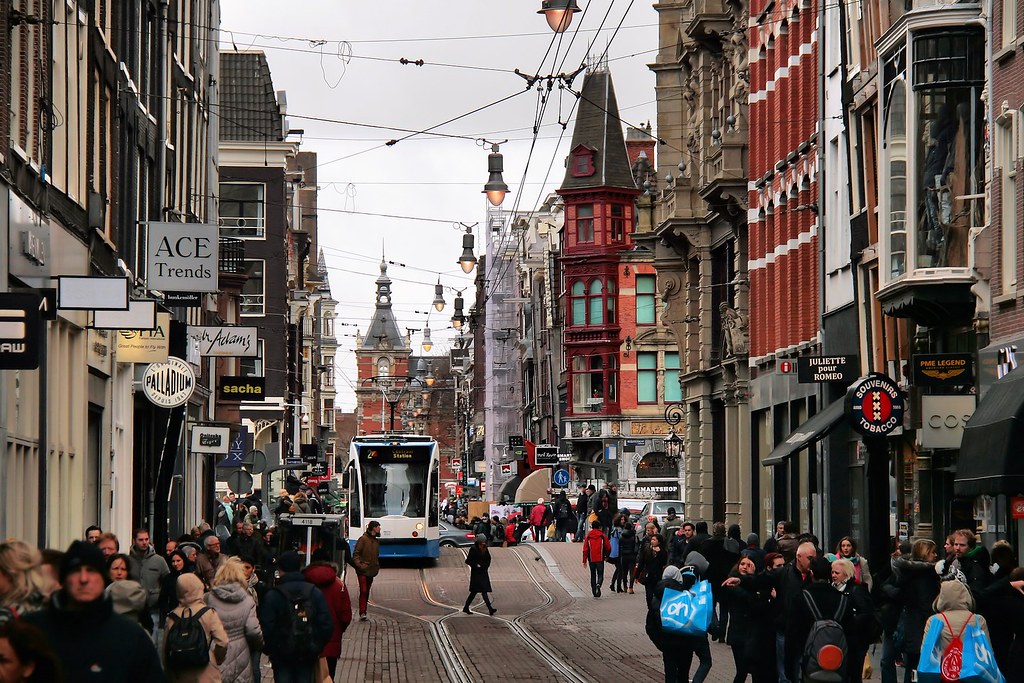Introduction: A Legendary Reputation
For decades, Amsterdam has been synonymous with cannabis. Tourists from around the world have flocked to the Dutch capital to experience its legendary coffee shops, where cannabis has been tolerated since the 1970s. Long before legalization took hold in Canada, Germany, or the United States, Amsterdam was the destination for those curious about exploring cannabis openly. The city built an entire cultural identity around this reputation, and cannabis tourism became as iconic as canals, tulips, or bicycles.
But in 2025, the global cannabis landscape looks very different. With more countries legalizing or decriminalizing cannabis, Amsterdam is no longer the only destination for cannabis travel. This raises an important question: is Amsterdam still the world’s weed capital? Or has its reputation shifted as cannabis spreads worldwide?
The Origins of Amsterdam’s Cannabis Culture
Amsterdam’s global fame as a cannabis destination comes from its “gedoogbeleid” policy, which translates to “tolerance.” Since the 1970s, Dutch authorities allowed cannabis sales in licensed coffee shops under strict regulations. Customers could buy small amounts, enjoy them on-site, and do so without fear of arrest.
This policy created a cultural revolution. Coffee shops became gathering spaces for locals, tourists, artists, and travelers. Amsterdam’s relaxed approach contrasted with harsh prohibition laws elsewhere, making the city a symbol of freedom. Music festivals, counterculture art scenes, and international backpacking routes all pointed to Amsterdam as the place where cannabis culture thrived.
The Coffee Shop Experience
For many, visiting an Amsterdam coffee shop is a rite of passage. Unlike dispensaries in the United States, these establishments are more like cafés. They serve food, drinks, and cannabis products, often in cozy, welcoming settings. Each coffee shop has its own personality, from laid-back lounges to lively, bustling venues.
The experience is not just about buying cannabis but about enjoying it in a social environment. Tourists sit at wooden tables with locals, order a cappuccino alongside a pre-rolled joint, and immerse themselves in a culture that normalizes cannabis as part of daily life. The décor often reflects Amsterdam’s artistic spirit, with murals, music, and eclectic design making each spot unique.
Cannabis Tourism as Economy
Cannabis has long been a major draw for Amsterdam’s tourism industry. By the 1990s and early 2000s, millions of visitors came each year specifically for cannabis experiences. This influx boosted local businesses, from hotels and restaurants to tour companies and souvenir shops. The city became a global cannabis brand, and the word “Amsterdam” itself became shorthand for cannabis freedom.
However, this popularity also created challenges. Local residents sometimes complained about overcrowding, noise, and an overemphasis on cannabis tourism overshadowing the city’s cultural heritage. In recent years, Amsterdam has debated ways to balance its reputation with the needs of locals, even proposing restrictions on tourists accessing coffee shops.
Global Legalization: New Competition Emerges
When cannabis was still illegal across most of the world, Amsterdam was unrivaled. But by 2025, the global picture has changed dramatically. Canada legalized nationwide in 2018, and Germany recently legalized adult use, creating a massive new European market. The United States has multiple legal states with thriving cannabis tourism, from California to New York. Spain’s private cannabis clubs offer a different kind of social model, while Thailand has become a surprising new hub for cannabis travelers in Asia.
This new competition means that cannabis tourists have more choices than ever. No longer do travelers need to fly to Amsterdam to experience cannabis culture. The city must now compete with destinations offering legal dispensaries, festivals, and unique experiences tied to cannabis.
Is Amsterdam Still Number One?
Despite the competition, Amsterdam continues to hold symbolic weight. The city’s history as the original cannabis tourism hub gives it cultural legitimacy that newer destinations lack. Coffee shops remain iconic, and the city continues to attract millions of visitors each year who want to experience its unique blend of cannabis, art, and history.
Yet, it is fair to say that Amsterdam is no longer unrivaled. For many, the novelty of legal cannabis in their own countries reduces the need to travel abroad for the experience. Others are drawn to emerging destinations with more modern cannabis industries offering wider product ranges, from concentrates to infused beverages. Amsterdam’s coffee shops remain rooted in flower and hash, a more traditional experience compared to today’s evolving market.
The Charm of Tradition
What sets Amsterdam apart is not just cannabis access but tradition. While other places focus on sleek dispensaries or luxury cannabis experiences, Amsterdam remains cozy, communal, and nostalgic. Sitting in a coffee shop feels like stepping into history, part of a global counterculture movement that shaped the cannabis industry worldwide.
For travelers who value authenticity, Amsterdam remains unmatched. The city’s canals, bicycles, and old-world charm amplify the experience, making cannabis feel embedded in everyday life rather than separated into a sterile retail environment.
Art, Music, and Cannabis in Amsterdam
Cannabis has always been tied to Amsterdam’s artistic identity. Musicians and artists flocked to the city in the 20th century, drawn by its open-minded atmosphere. That legacy continues today. Jazz clubs, electronic music festivals, and street artists still draw inspiration from the cannabis-infused culture.
Tourists often combine cannabis with museum visits, enjoying the Van Gogh Museum or Rijksmuseum in a more immersive way. Others pair cannabis with Amsterdam’s famous nightlife, from techno clubs to live music venues. Cannabis is not the main event but an enhancer of everything the city offers.
The Changing Laws and Future of Tourism
Amsterdam continues to debate cannabis policy. Some leaders want to limit tourist access to coffee shops, arguing that it strains local resources. Others see cannabis tourism as essential to the city’s identity and economy.
Future changes could reshape the industry. If Amsterdam restricts tourists, it could lose its crown as the world’s weed capital. On the other hand, if it embraces modernization — expanding product offerings, integrating lounges, or hosting cannabis-themed festivals — it could reclaim its dominance.
Lessons from Amsterdam for Global Cannabis Culture
Amsterdam’s story is a lesson in how cannabis can shape identity, economy, and culture. The city pioneered tolerance, showing the world that legalization does not destroy communities but can instead enrich them. Its coffee shops became prototypes for today’s dispensaries, and its culture inspired activists and entrepreneurs worldwide.
Even if Amsterdam is no longer the only destination, its role as a pioneer ensures it will always hold a special place in cannabis history. Travelers who visit today experience not just cannabis but the roots of modern cannabis culture itself.
Conclusion: Still a Capital, But Not Alone
So is Amsterdam still the world’s weed capital? In spirit, yes. The city’s history, culture, and iconic coffee shops keep it at the center of cannabis tourism. But in practice, Amsterdam now shares the stage with destinations across Europe, North America, and beyond.
For Token Dispensary, Amsterdam represents what cannabis culture can become when it is integrated into daily life rather than treated as taboo. Whether you visit for the history, the coffee shops, or the art, Amsterdam remains an essential stop for cannabis travelers. But in 2025, it is no longer the only capital — just the original.



